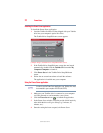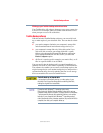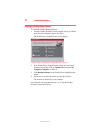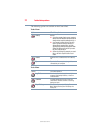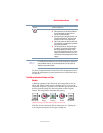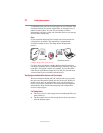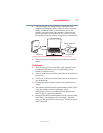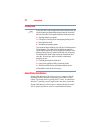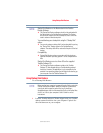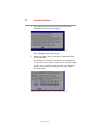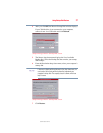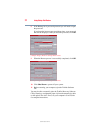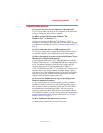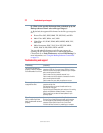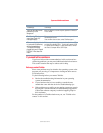
28
Erasing Data
5.375 x 8.375 ver 2.3
Erasing Data
If your hard disk or other storage media contains sensitive data, you
should be aware that standard deletion procedures do not remove
data from the media. These standard deletion procedures include:
❖ Selecting Delete for a target file
❖ Putting files in the Recycle Bin and emptying the Recycle Bin
❖ Reformatting the media
❖ Reinstalling an operating system
The procedures above delete only the initial part of the data used for
file management. This makes the file invisible to the operating
system, but the data can still be read by specialized utilities. If you
dispose of the hard drive, first delete all the data on it using one of
the methods listed below. Doing so prevents unauthorized use of
such data. To ensure your data is not used for unauthorized
purposes, you can:
❖ Physically destroy the hard disk drive
❖ Use a proven specialized utility to overwrite all data
❖ Take the hard disk drive to a professional deletion service
All data deletion costs will be borne by you.
About Startup Disk Restore
Startup Disk Restore can be used to restore a computer with the
minimum required Windows
®
operating system after a system
failure. The startup disk is typically the (C:) drive. It contains the
Windows
®
operating system, applications, and other system files.
Startup Disk Restore will not repair a startup disk that has failed
due to a physical problem, such as crashed read/write heads.
NOTE



